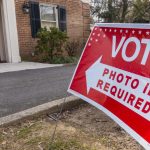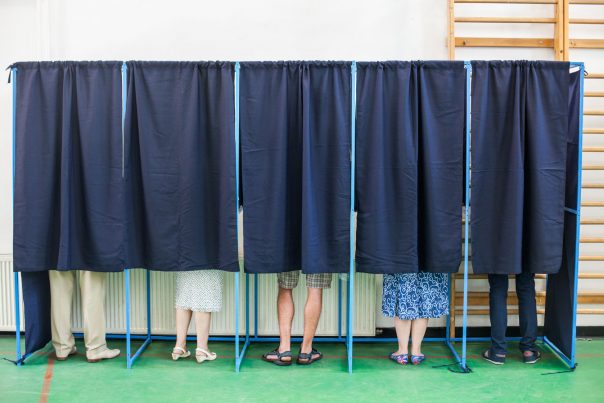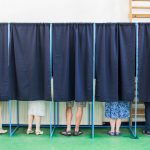
Going Old School to secure elections: A group of senators proposes to return to paper ballots for U.S. elections
Thursday, January 11, 2018 by Jayson Veley
http://www.fakepolls.news/2018-01-11-senators-propose-return-to-paper-ballots-elections.html

By this point, it has become abundantly obvious that the threat of interference in U.S. elections from foreign governments is a very serious issue. Thankfully, a small group of congressional leaders are taking a stand.
As reported by arstechnica.com, a bipartisan group of six senators has introduced what they are calling the Secure Elections Act, which aims to officially do away with insecure paperless voting machines that are commonly used in American elections while at the same time promoting routine audits as means of reducing the potential of interference from foreign countries.
The proposed legislation comes on the heels of the 2016 presidential election. Even though there hasn’t been any concrete evidence that suggests the Russian regime actually altered any votes, we know for a fact that the Russian government was probing U.S. voting systems prior to the election. As such, the Secure Elections Act will put certain precautions and safeguards in place to ensure that such interference never happens again.
“With the 2018 elections just around the corner, Russia will be back to interfere again,” explained the bill’s co-sponsor Senator Kamala Harris of California.
The Senators have explained that there are two primary objectives for their proposed legislation. The first has to do with, as previously mentioned, the elimination of paperless electronic voting machines. For over a decade now, computer scientists have warned that electronic voting machines can be hacked with relative ease and can’t be properly audited. Even though many states have started to slowly move away from these types of machines, others are forced to continue to rely on insecure paperless equipment due to budget constraints. If the Secure Elections Act is passed, then states would receive grants to allow them to replace electronic voting machines with voter-verified paper ballots.
The second primary objective of the Secure Elections Act is to encourage states to conduct post-election audits using modern statistical techniques. Most states only conduct recounts after an election if the results are too close to call and involve counting a fixed percentage of ballots, which often results in either counting too many ballots or not counting enough.
In addition to dealing with interference from foreign nations in U.S. elections, congressional leaders must also look for ways to prevent voter fraud, which has also proven to be a very serious issue in America in recent years. As reported on The Daily Caller, according to a 2016 Washington Post-ABC poll, almost 50 percent of Americans say that voter fraud happens quite often. (Related: Donald Trump is right to investigate voter fraud… and many experts believe that he will find plenty of evidence to prove it.)
Furthermore, the Charlotte Observer has reported that in the state of North Carolina, more than 508 ineligible votes were cast in the 2016 presidential election. Of those 508 votes, 41 came from legal non-citizens. Additionally, there were 24 cases of double-voting and 2 cases of voter impersonation. But it’s not just North Carolina that experienced cases of voter fraud during the 2016 election (Related: An immigrant was arrested for repeatedly committing voter fraud to skew the U.S. election, while corrupt democrats still claim that voter fraud never happens).
In the state of Virginia, a student at James Madison University plead guilty to registering voters for the Democratic Party who were already dead. In Texas, a woman was sentenced to eight years in prison after it was revealed that she illegally voted in both the 2012 and 2014 elections. Clearly, this too is a problem that is starting to get out of control, and congress should take the steps necessary to fix it, or at the very least, minimize the issue as much as possible.
See VoteFraud.news for more coverage of voter fraud.
Sources include:





